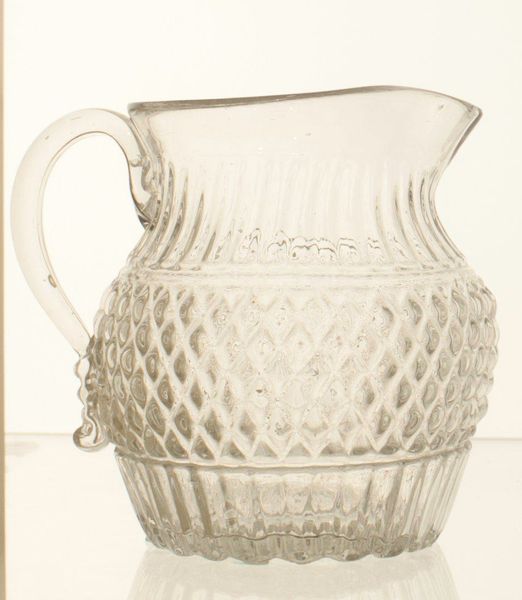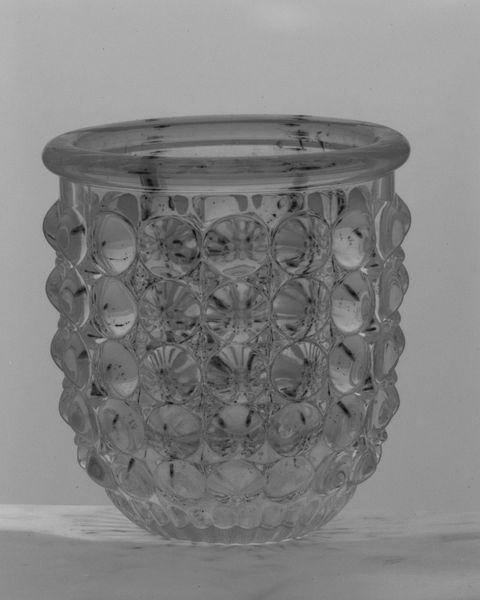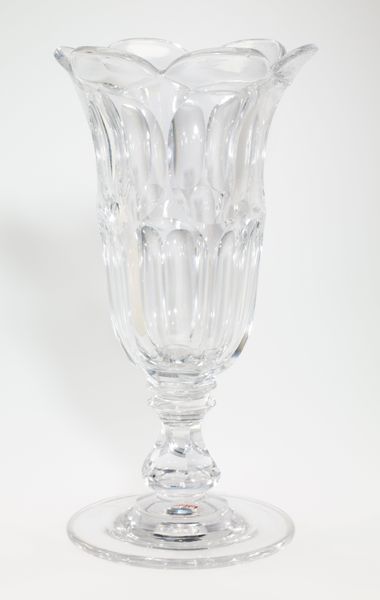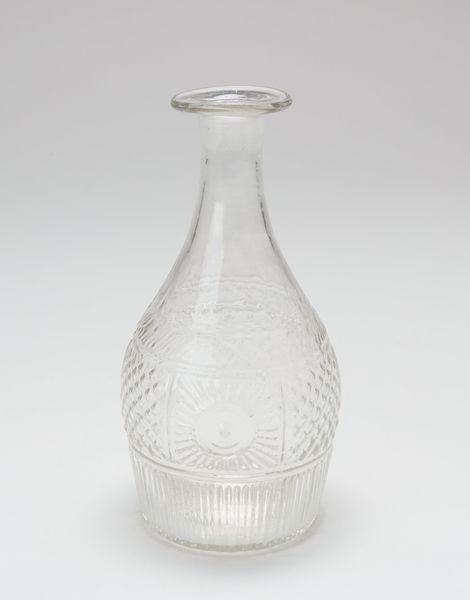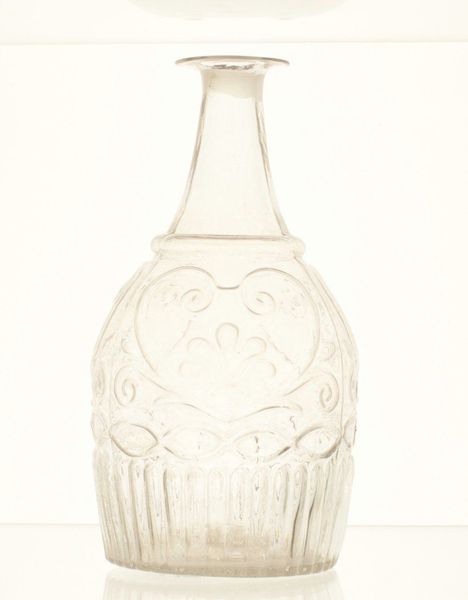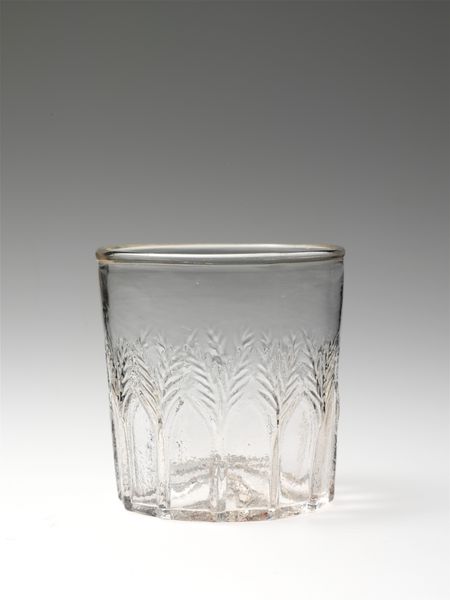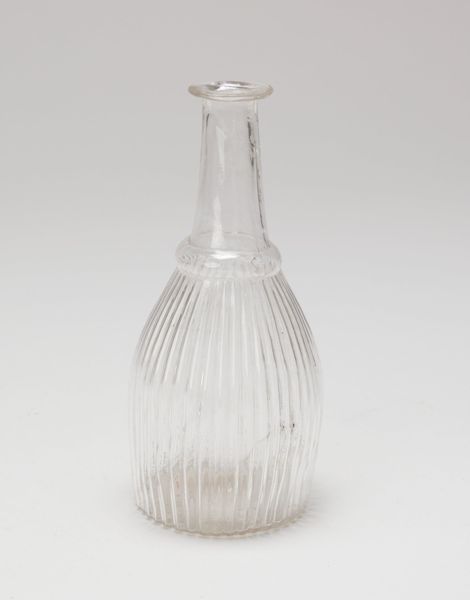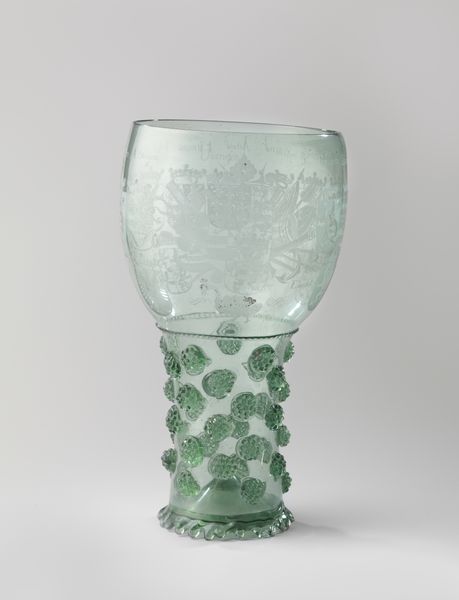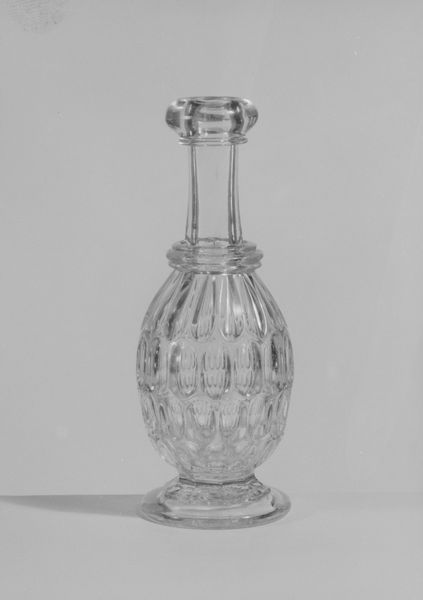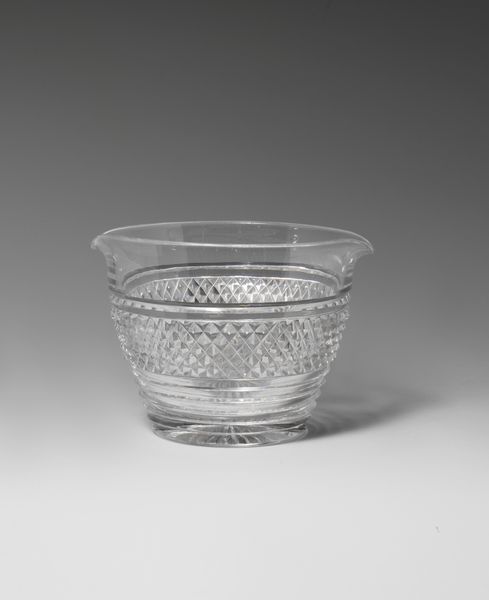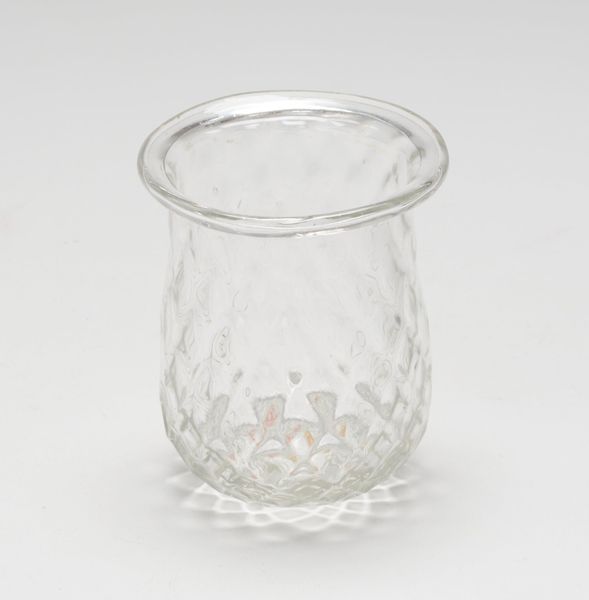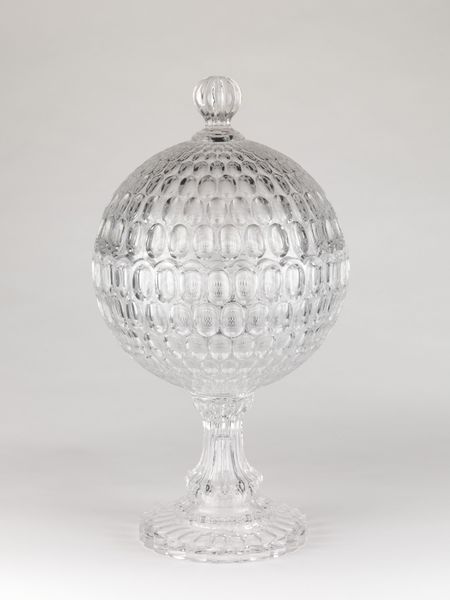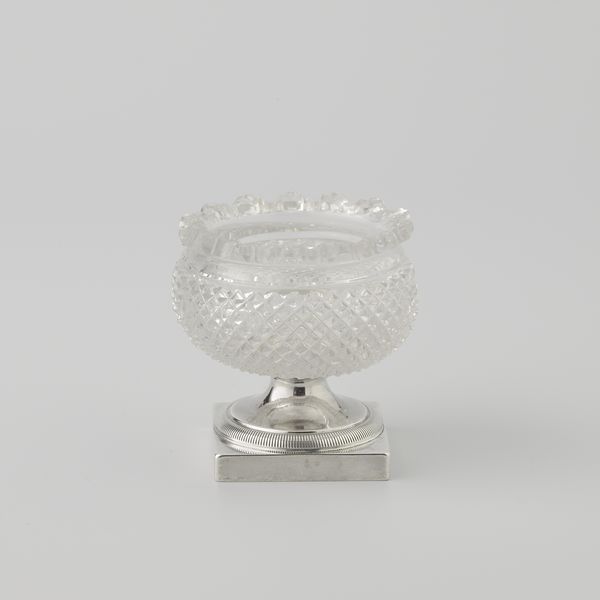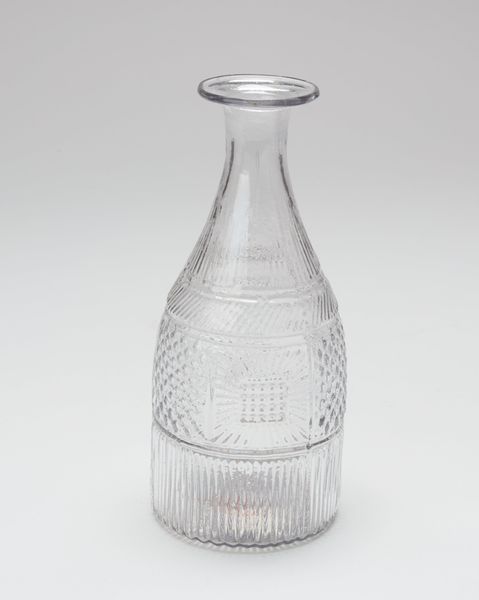
glass
#
baroque
#
glass
#
decorative-art
Dimensions: 6 3/4 x 4 7/8 x 4 7/8 in. (17.1 x 12.38 x 12.38 cm) (at top)
Copyright: Public Domain
This anonymous celery vase, residing here at the Minneapolis Institute of Art, is made of clear pressed glass. Its appeal lies in its materiality. Glass offers transparency and delicacy, but here the pressed technique emphasizes its ability to be molded and mass-produced, rather than hand-blown. Notice the geometric patterns and vertical ribs; these were impressed into the glass as it cooled in a mold. This was an efficient, industrial process, allowing for the creation of decorative objects at a lower cost than traditional glassblowing. This kind of glass was popular in the 19th century, and its appeal was tied to wider social issues of affordability and consumption. Ordinary households could enjoy decorative tableware that mimicked the appearance of luxury cut glass, bringing elegance to a wider audience. Considering this celery vase, understanding the materials, the method of making, and the context in which it was made, enriches our appreciation, while challenging the boundaries of what we consider high art.
Comments
No comments
Be the first to comment and join the conversation on the ultimate creative platform.
